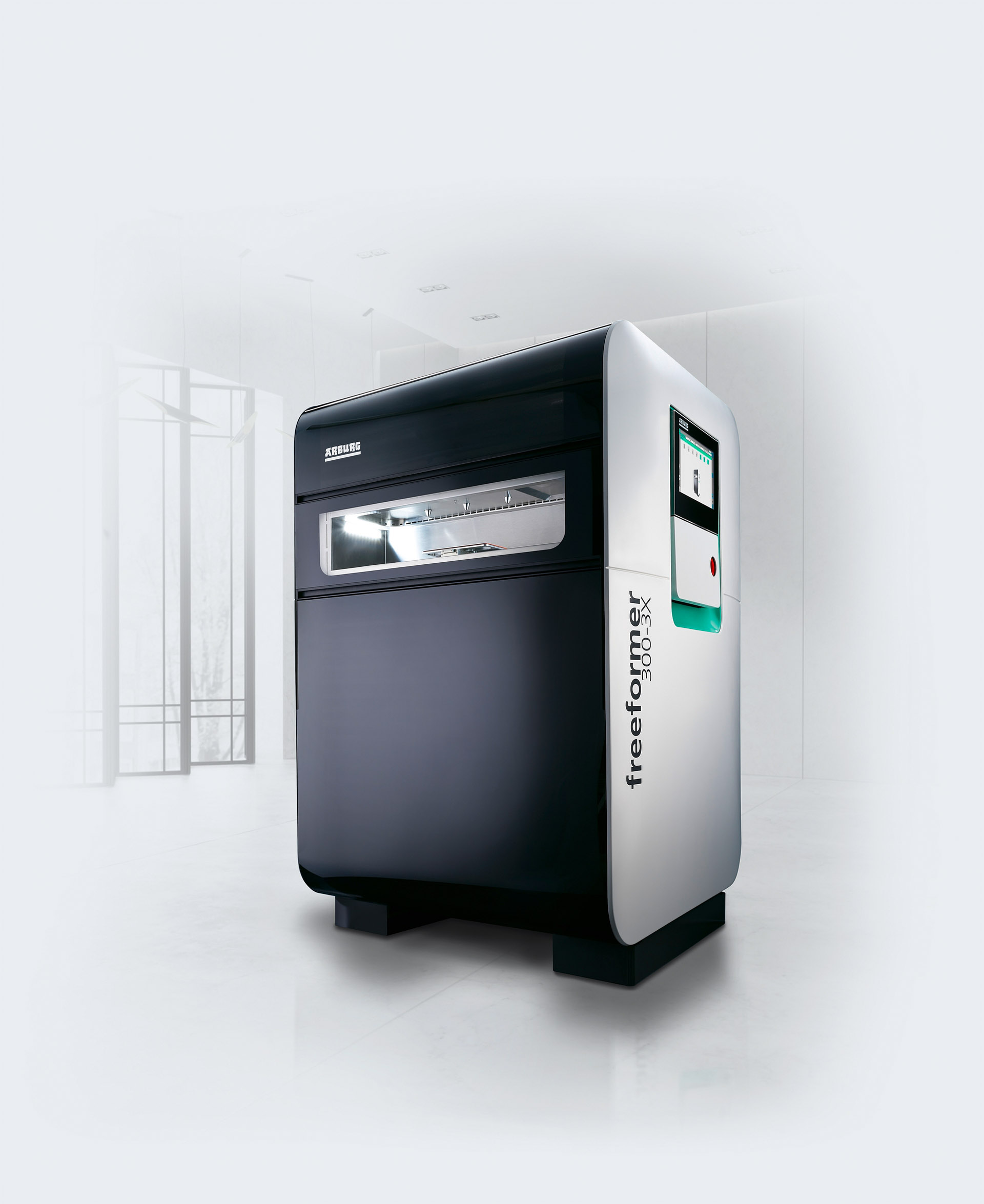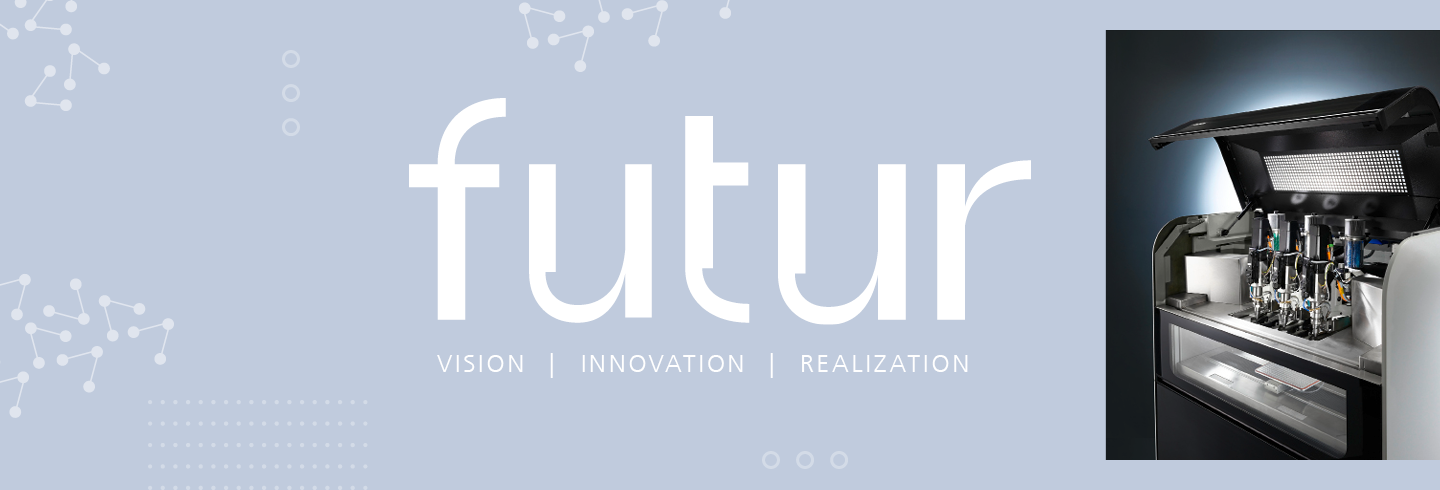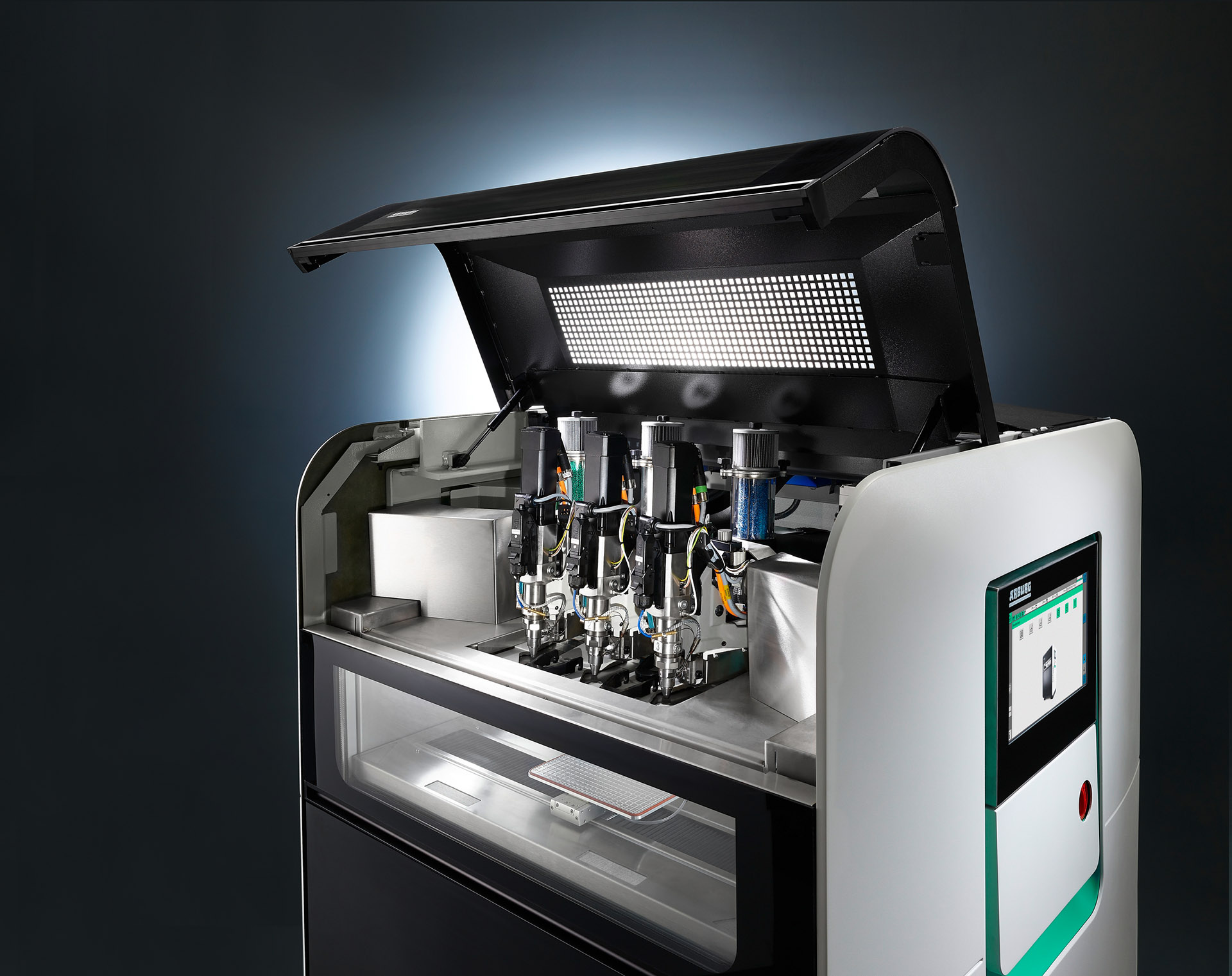Additive, Creative, Alternative
In search for sustainable plastic alternatives to be used in industrial manufacturing, it is not only crucial how they are produced, but also how they are processed. Researchers in the »BioFusion 4.0« project want to find creative solutions for technical problems like these by using principles of natural systems.


To this end, researchers at the Application Center for Microproduction Technology AMP are producing replacement or functional components from biogenic and degradable polymers by additive manufacturing. These are formed from waste materials with the help of bacteria, whereby the researchers make use of the natural property of microorganisms in deficient environments to form reserve deposits in the form of small plastic particles. Using additive manufacturing technologies, they can produce short-lived spare parts on-demand from this biodegradable plastic.
These parts are printed mechanically using the freeformer 300-3X 3D printer by the company Arburg, which has its roots in injection molding. Accordingly, the printing technique starts off similarly to injection molding with the melting of the granulate in a heated plasticizing cylinder with a screw. A high-frequency, rigid nozzle closure then discharges up to 330 drops per second. The smaller the droplets, the finer the surface structure, while larger diameters allow faster working progress. In the process, the droplets bond with the material already surrounding them, so that layer by layer, three-dimensional components of high mechanical durability can be created.
In processing their biopolymer, the Fraunhofer IPK team takes advantage of a special feature of the printer: the ability to print three materials simultaneously. This allows for industrial additive manufacturing of complex functional components in a resilient hard-soft compound with a support structure. In addition to their own material, the scientists can also access Arburg's material database.
Moreover, it is possible to automate additive manufacturing and integrate the freeformer 300-3X into IT-networked production lines. In the course of the »Biofusion 4.0« project, the researchers can thus integrate microservices for print initiation to create a decentralized system. This means less planning effort and quick adaptation to changing conditions. For example, if the need for a gripper is communicated from the workshop, the pressure triggering of a corresponding component made of bioplastic can be controlled in a decentralized manner. After its use phase, the gripper is compostable and can be disposed of without hesitation. This enables manufacturing companies to make their contribution to a sustainable, carbon-neutral production.
 Fraunhofer Institute for Production Systems and Design Technology
Fraunhofer Institute for Production Systems and Design Technology
